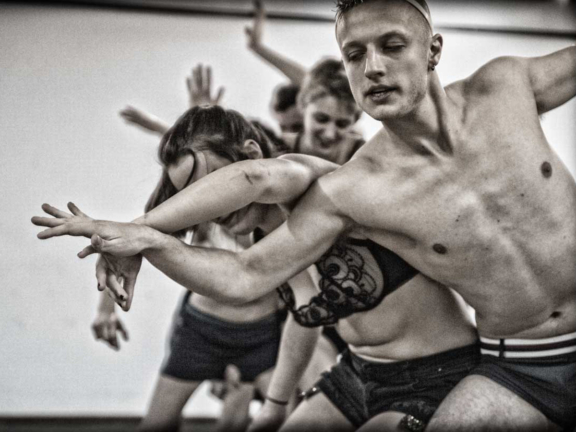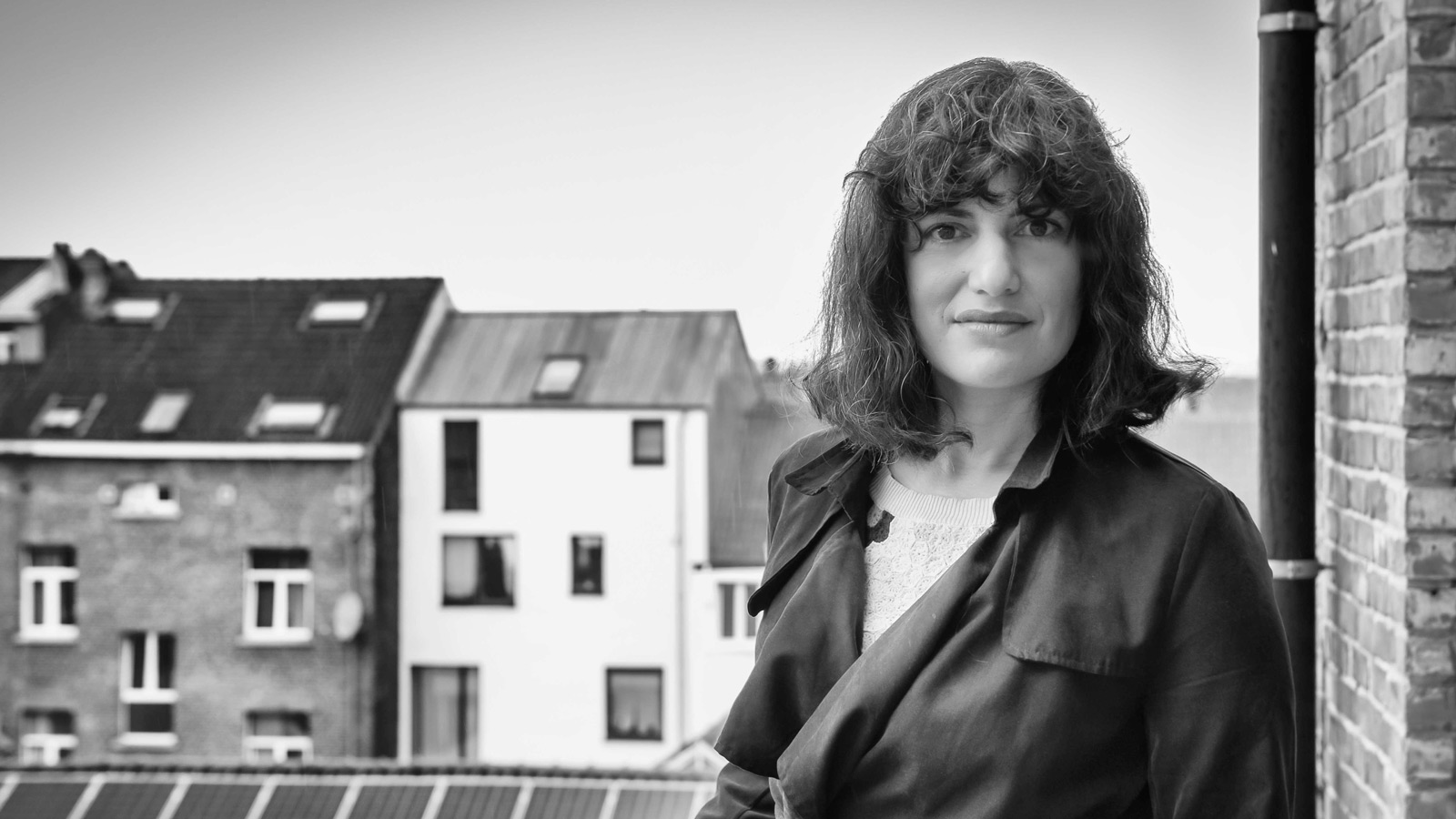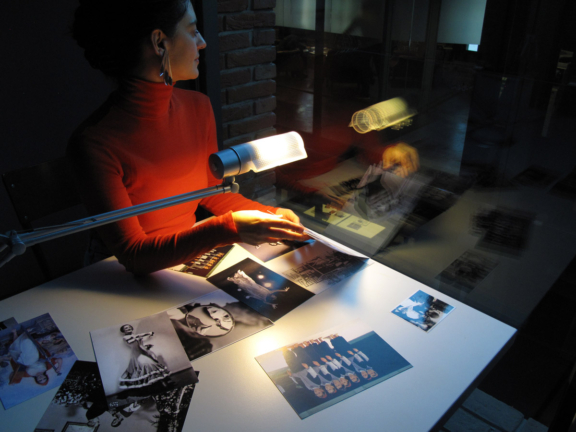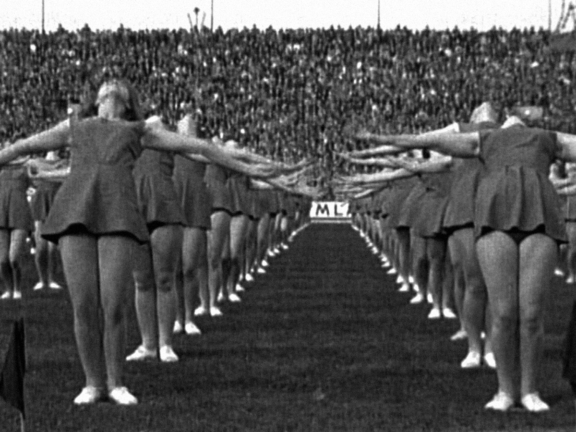
Social Choreography: Rehearsing order for the appearance of disorder
By Bojana Cvejić
Event Slider
Date
- / Cancelled / Sold out
Location
Room 1 Calouste Gulbenkian FoundationThis event is presented in English with no translation.
Social choreography has been associated with harmonious arrangements of dancing bodies and individual gestures in which images or protocols of social order manifest themselves aesthetically or are rehearsed. Throughout Western modernity, we can see how the political ideas that govern the social order have changed in performance terms, i.e. how they have choreographed us.
However, in Europe, in every epoch, including during the Covid-19 pandemic, occasional eruptions of disorderly movements were experienced at an individual and mass scale, driven by crisis, illness, madness, protest or intoxication. During these movements, people seem to appear on the public scene, raising the question: are these manifestations of disorder also choreographed? How do the aesthetics of disorder in everyday movement shape social order?
Included in the dance not dance programme, this conference closes a day entirely dedicated to addressing the issues of transmission, choreography and history. These three terms synthesise key ideas of the dance not dance programme, revealing what is political and ideological in the forces that move bodies among themselves and through time.
On the same day, the conference On the possibilities of conserving performance by Hélia Marçal, the conference-performance Envelopment, history and syncope by Isabel de Naverá, and the screening of the film Yugoslavia: How ideology moved our collective body by Marta Popivoda also take place.
Image © Bea Borgers
Bojana Cvejić (1975, Belgrade, Serbia) is the author of books such as Choreographing Problems (Palgrave, 2015) and Toward a Transindividual Self: A Study in Social Dramaturgy (co-authored with Ana Vujanović Archive Books, 2023). She has participated in numerous opera, dance, video-dance and theatre works in Europe as co-director, dramaturge or performer. She teaches at P.A.R.T.S. in Brussels and has been a dance theory professor at the National Academy of Arts in Oslo since 2017.
dance not dance
This event is included in the (re)performances, films and talks series which constitutes the first part of dance not dance – archaeologies of the new dance in Portugal. More info.
The Calouste Gulbenkian Foundation reserves the right to collect and keep records of images, sounds and voice for the diffusion and preservation of the memory of its cultural and artistic activity. For further information, please contact us through the Information Request form.



